News: March
Crazy frogs
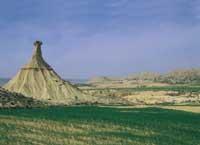
Yesterday there was a heavy rain in the Arball forest and today the roadside wells have been filled with red frogs from all around. In the water we have an incredible spectacle: superimposed frogs, males who fight to catch the females, and sometimes four and five males tied to the same female. Balls with hundreds of eggs have already been found and if there are no mistakes, after a few days the well will be full of tadpoles.
Although in some places the reproduction of red wild frogs began late last year, most rations have occurred in the first two months of this year. However, in the high mountains of Irati and the Pyrenees, at this time they stand and after the warm rain of yesterday, today there will be a great party. Like red wild frogs, palmate tritons, txantxikus and other amphibians are immersed in reproductive work.
In the sun
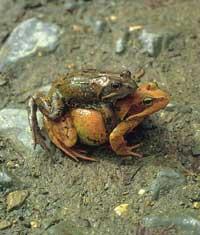
Lizards, lizards and snakes buried in winter expected a day as warm and beautiful as the current one. Today the thermometer has risen and many of these animals have fallen into the sun. Since most have just come out of hibernation, we have unemployed and semilloos, but if the weather goes on like this, they will soon recover. Among the reptiles we have seen, we have seen carrilleras and green lizards with an endless intense blue that have begun to enter into heat. So soon the males will compete to match the females.
Home counterweights
As bustling as ever, yesterday night we noticed geese over the village. It is a time of contrapás and many birds have come the time to return to the land of breeding. To make good weather it can be interesting to go to Ondarroa, Mutriku, Orio and in general to the coast, since the show of a few days can be wonderful; a very beautiful morning we can see thousands of txontas, karnaba, pottery, dove, etc.
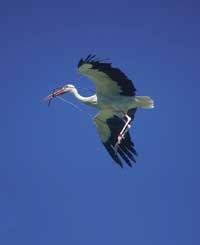
As the day progresses, you can spend quiet and elegant species of raptors, milanos, miracles and others. At night, we can try to see birds looking at the moon or listen to their songs to detect the passage.
In addition to the coast, the counterweight may sound elsewhere, but it is usually not as evident as it happens. It seems that birds travel faster towards the breeding territory and as in autumn there are exceptional concentrations on some hills, in spring they move on a wider front and migration is not so spectacular.
Among the birds returning from the end of this month are the swallows, one of the best known and beloved. These agile and cheerful fins have an incredible ability to appear in different villages each year on specific days.
Bird Songs Everywhere
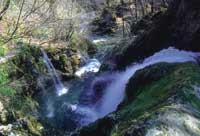
After the sad silence of the previous months, the birds ring the tap again. Through chanting, most males want to claim territory and attract females. And for most birds it is essential to get a territory if they want to reproduce, and if you notice the singing of another person, you will try to throw it from the territory. In the case of the majority of small migrant passerines, the first to arrive from the winter region are the males and immediately begin to sing to get the best territories as soon as the females appear. Like some birds use singing, others use the visual equivalents of songs. Thus, many birds can use special movements and dances to maintain the territory and invite the females.
Sex in any street
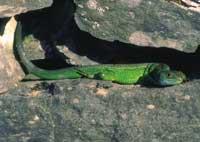
Spring driving is noticeable on any street. Like other species, the sparrows have come time to get into the heat and being a little brazen, it is easy to see their wedding games. To do this just throw some bread in any park and collect a group of hats. As soon as we pass by the female, we will see how the sparrow is torn. Inflated, it hangs the wings and raises the head and tail towards the sky in front of the “lady”. To raise the tension, the female will give a little bit to the male in the rib and as if the conduction was contagious, the males around will also approach the fire. The female will then fly chasing all the males so that the party continues elsewhere.
In addition to sparrows, pigeons have brought us closer to the few loaves. We are also hot and the males sing with a swollen neck in front of the females and start to stretch the tail and turn. The Plaza del Castillo de Pamplona, the Arenal de Bilbao, or any other space where there are many pigeons on the street, can serve to see the festivals of pigeons.
Looking at the white storks
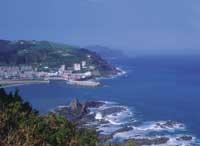
Carraca-cu-ma-ka. Mr. Zikoina swings his head back and Mrs. Stork goodbye kindly shaking the mic. This second answer is similar. More than a month ago the Amiamocos returned from Africa and without wasting time, they have taken the branches several times to the nest and have begun to fix the structure of last year. This beautiful show can be enjoyed in the nearby Gamarra de Vitoria.
Despite the bad years of the species, in recent years the white asbestos population is growing and in 1997 in Navarra there were 185 nests and more than 16,000 in the Spanish state. To mention the nest of great prestige, we have mentioned the one that is in the area of Vitoria-Gasteiz, but the municipality that has more nests in Euskal Herria, with more than 40, is Tudela. Therefore, Tudela and the Ribera de Navarra are the ideal areas for observing storks in our territory.
Bears pups grazing
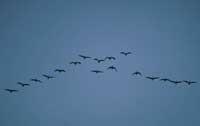
The correspondent we have in the Pyrenees tells us that the heights are snowy, and although we have officially entered in spring, in the mountains there is no. However, in a bear there are two hot bear cubs in her mother's arms. When they were born a month ago, they only had 350 grams, but the consumption of breast milk has made their mother's milk have already taken something. Two bear balls have already become hairy, but they have not yet come out of the hole protection for anything and until next month they will not. Until then continue well!





